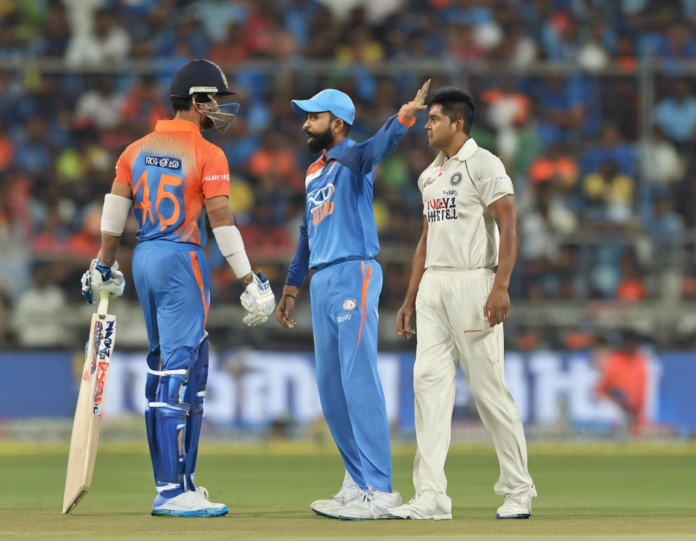The toss in a cricket match is a crucial moment that can often set the tone for the rest of the game. The decision to bat or bowl first can have a significant impact on the outcome of the match, depending on various factors such as pitch conditions, weather, and team strategies. In the dynamic world of cricket, predicting the outcome of a toss is as unpredictable as the game itself. However, there are certain key factors that can be considered when analyzing which team might win the toss in an India vs. New Zealand match.
Team Strategy
One of the primary considerations for teams when winning the toss is to assess the pitch conditions and decide whether they want to bat or bowl first. Teams often have a preferred strategy based on their strengths and weaknesses, which can influence their decision at the toss. For instance, some teams may have a strong batting lineup and prefer to set a target for the opposition, while others may rely on their bowlers to restrict the opposition and chase down a total.
Pitch Conditions
The condition of the pitch is a crucial factor that can influence the toss decision. A pitch that offers early movement and assistance to the bowlers may prompt the team winning the toss to bowl first and take advantage of the favorable conditions. On the other hand, a flat pitch that is expected to deteriorate later in the game may tempt the team to bat first and capitalize on scoring opportunities before the pitch becomes more challenging.
Weather Conditions
Weather conditions such as overcast skies or chances of rain can also play a significant role in the toss decision. Teams may prefer to bowl first if there is cloud cover, as it can assist the seam bowlers in swinging the ball. Similarly, the threat of rain interruptions may influence the decision to bowl first and try to complete the innings before any potential disruptions.
Head-to-Head Statistics
Head-to-head statistics between India and New Zealand can provide some insights into which team has historically been more successful at winning the toss in their matchups. Analyzing the trends and patterns of past encounters can give an indication of which team might have the upper hand in terms of toss victories.
Captain’s Toss Record
The captain’s toss record can also be a crucial factor in predicting the outcome of the toss. Some captains have a reputation for making shrewd decisions at the toss, based on their reading of the conditions and the strengths of their team. Considering the track record of the respective captains in winning tosses can provide valuable insights into which team is likely to have the edge in the toss.
In conclusion, predicting the outcome of a toss in a cricket match is a challenging task that involves considering various factors such as team strategy, pitch conditions, weather, head-to-head statistics, and the captain’s toss record. While there is no foolproof way to determine the toss winner, a thorough analysis of these factors can help in making an educated guess.
Frequently Asked Questions (FAQs) about Toss Prediction in Cricket:
1. Can the outcome of the toss have a significant impact on the match result?
– Yes, winning the toss can give a team an advantage by allowing them to tailor their strategy to the playing conditions.
2. Are there any superstitious beliefs or rituals associated with winning the toss?
– Some players and teams may have certain superstitions or rituals that they believe bring them luck in winning tosses.
3. How do umpires ensure a fair toss in cricket matches?
– Umpires oversee the toss process to ensure that it is conducted fairly and that neither team has an unfair advantage.
4. Has there been any research on the correlation between winning the toss and winning the match?
– Some statistical analyses have been conducted to study the impact of winning the toss on match outcomes, with varying results.
5. Are there any instances of teams deliberately losing the toss to gain an advantage in a match?
– There have been instances in cricket history where teams have strategically lost the toss to exploit the conditions to their advantage.
6. Can technology or data analytics be used to predict the outcome of a toss?
– While technology and data analytics can provide insights into various aspects of the game, predicting the outcome of a toss remains largely unpredictable.
7. How do teams prepare for the uncertainty of the toss outcome in a match?
– Teams often have contingency plans in place for both batting and bowling first, depending on the toss result, to adapt quickly to the match situation.
8. Does the importance of winning the toss vary across different formats of cricket, such as Test matches and T20s?
– The significance of winning the toss can vary based on the format of the game and the specific conditions prevalent in different formats.
9. Can the toss be retaken if there are any irregularities or disputes during the tossing process?
– In rare cases of irregularities or disputes during the toss, umpires may order a retoss to ensure fairness and integrity in the decision-making process.
10. How do captains decide on their toss preferences, considering the various factors at play?
– Captains rely on their experience, consultation with teammates, and assessment of playing conditions to make a well-informed decision at the toss.
